Find Help
More Items From Ergsy search
-
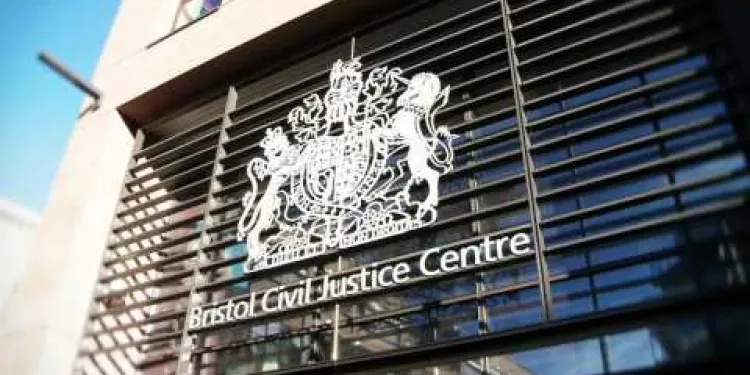
The Family Court without a Lawyer - Video 1 of 3
Relevance: 100%
-

The Family Court without a Lawyer
Relevance: 95%
-
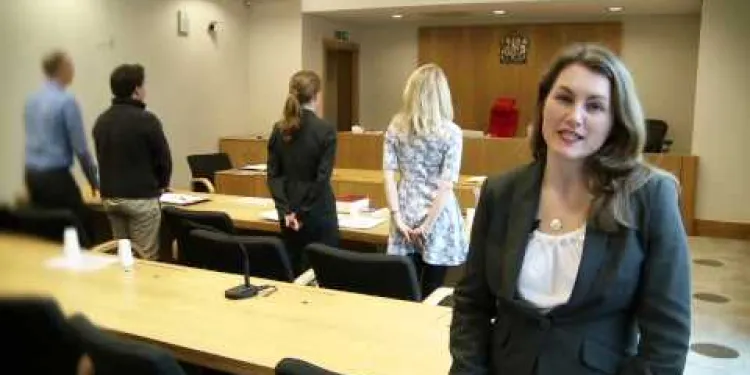
The Family Court without a Lawyer - Video 2 of 3
Relevance: 92%
-

The Family Court without a Lawyer - Video 3 of 3
Relevance: 89%
-
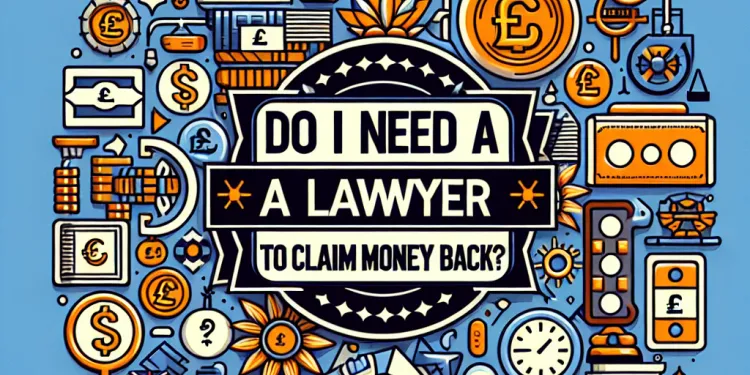
Do I need a lawyer to claim money back?
Relevance: 60%
-

What are the changes to Family Court Law in 2026?
Relevance: 55%
-
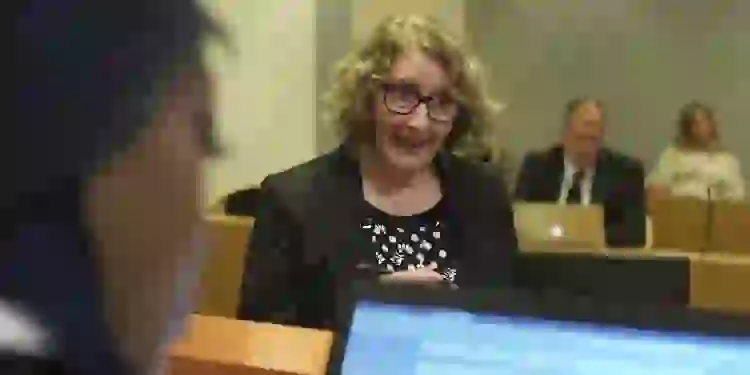
Magistrates in the Family Court: A Public Law Case
Relevance: 55%
-

Magistrates in the Family Court: A Private Law Case
Relevance: 54%
-
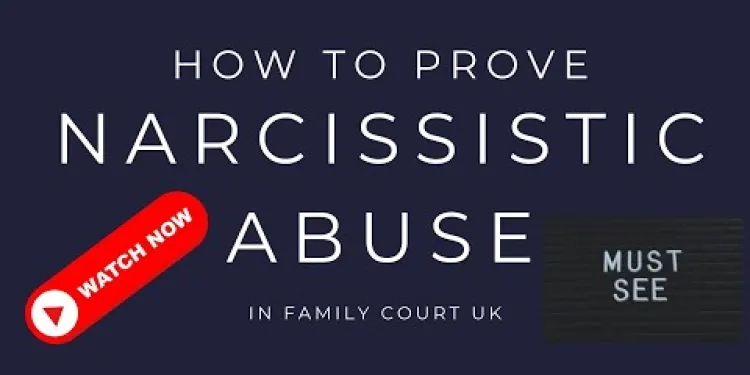
How To Prove Narcissistic Abuse In Family Court UK
Relevance: 53%
-
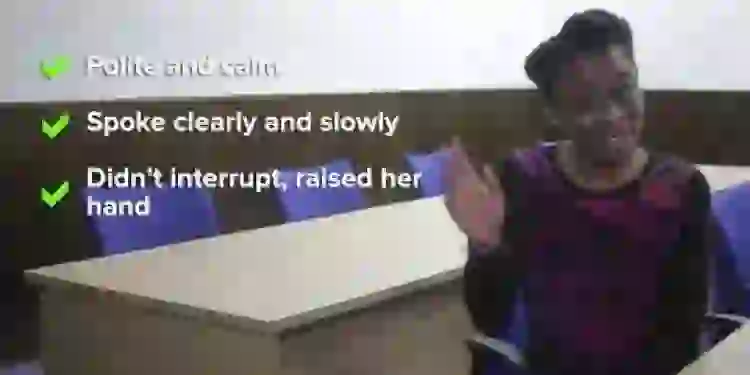
How to represent yourself in family court in England and Wales
Relevance: 53%
-

Can legal representation speed up the process of a case coming to court?
Relevance: 52%
-

Have the rules for changing a child's name in family court changed in 2026?
Relevance: 51%
-

I'm Getting a Divorce | Tips From a Divorce Lawyer
Relevance: 51%
-

Are there modifications to legal aid access in family court for 2026?
Relevance: 50%
-

What role do lawyers play in drug offence cases?
Relevance: 50%
-

What digital services have been introduced in family courts in 2026?
Relevance: 49%
-

What should I do if I can't afford a lawyer for the eviction process?
Relevance: 48%
-

What are the new protocols for domestic violence cases in family court in 2026?
Relevance: 48%
-

Why might a court date be delayed?
Relevance: 46%
-

Have the rights of same-sex couples been affected by the 2026 family court changes?
Relevance: 46%
-

Does the Attorney General in the UK have to be a lawyer?
Relevance: 44%
-

What is the status of joint custody provisions in the 2026 family court updates?
Relevance: 44%
-

How have prenup agreements been affected by the 2026 family court changes?
Relevance: 44%
-

Are there any changes to surrogacy arrangements under the 2026 family court law?
Relevance: 44%
-

Can I appeal a court's eviction decision?
Relevance: 44%
-

How are parental rights addressed differently in the 2026 family court updates?
Relevance: 43%
-

Does the location of the court affect case timing?
Relevance: 42%
-
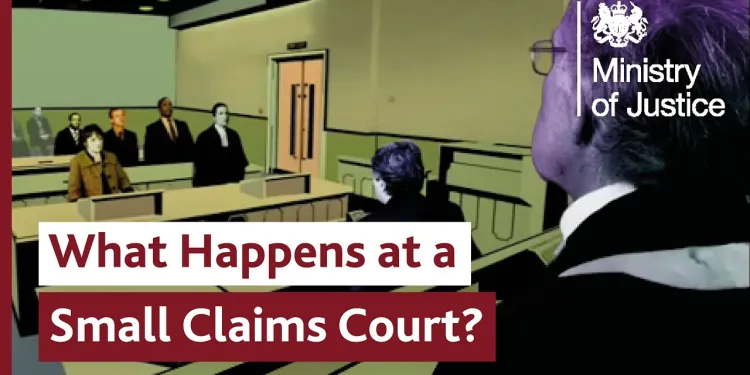
What Happens at Small Claims Court? Making a Court Claim for Money
Relevance: 41%
-

Court of Protection
Relevance: 40%
-

What are the key changes to family court law in 2026?
Relevance: 40%
-
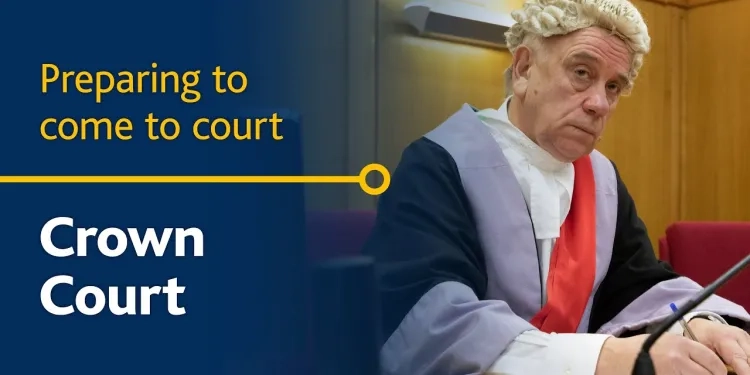
Crown Court - Preparing to come to court
Relevance: 40%
-

The Crown Court
Relevance: 39%
-

When should you consult a lawyer about a boundary dispute?
Relevance: 38%
-

How long does it take for a case to come to court?
Relevance: 37%
-

How do court holidays affect the timeline for a case to come to court?
Relevance: 37%
-

How does the type of case impact the court schedule?
Relevance: 37%
-
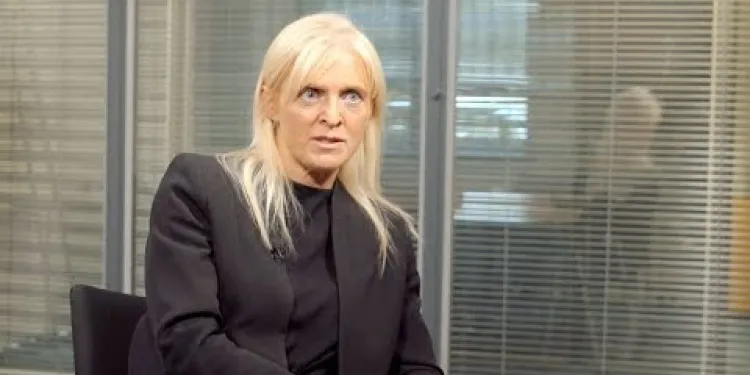
Child Care Proceedings | Family Law
Relevance: 36%
-

What impact can unexpected events have on the court scheduling of a case?
Relevance: 36%
-

How quickly can a criminal case come to court?
Relevance: 33%
-

Is there a standard minimum or maximum time for a case to reach court?
Relevance: 32%
The Family Court without a Lawyer
Introduction
Navigating the Family Court without a lawyer, or "litigating in person," has become increasingly common in the United Kingdom. This guide aims to provide an overview of the process, highlight some key considerations, and offer practical tips for representing yourself effectively.Understanding the Family Court
The Family Court deals with issues such as divorce, child custody, and financial disputes following the breakdown of a relationship. It is designed to resolve family conflicts in a fair and just manner. In the UK, the Family Court’s primary objective is the welfare of any children involved.Preparing Your Case
Proper preparation is crucial when representing yourself. Begin by gathering and organizing all relevant documents, such as financial records, communication logs, and any previous court orders. Familiarize yourself with the rules of the court and the specific legal procedures related to your case. The UK government website and various legal aid organizations offer valuable resources and templates.Filing Applications and Forms
Submit the necessary forms and documents to the court correctly and on time. Each type of case requires different forms, and it's important to complete these accurately. The court's website provides guidance on which forms you need and how to fill them out. Incorrect or incomplete forms can lead to delays or even the dismissal of your case.Attending Hearings
On the day of the hearing, arrive early and bring all necessary documents. Be prepared to present your case clearly and concisely. The judge will give each party an opportunity to speak, so make sure you understand the key points you need to convey. Practice beforehand to ensure you are confident and articulate.Accessing Support
While you may not have a lawyer, there are several support options available. Citizens Advice, legal clinics, and support groups can offer valuable guidance. McKenzie Friends, individuals who assist litigants in person, can provide advice and moral support, but cannot represent you in court.Alternative Dispute Resolution
Consider alternative dispute resolution (ADR) methods such as mediation or arbitration, which can be less formal and less adversarial than court proceedings. ADR can often lead to quicker and more amicable resolutions, especially in cases involving child custody or financial disputes.Conclusion
Representing yourself in the Family Court can be challenging but is manageable with the right preparation and resources. Understand the court's procedures, prepare your case diligently, and seek support where available to effectively present your case. The ultimate goal remains the fair and just resolution of family disputes, with the welfare of any children being paramount.The Family Court without a Lawyer
Introduction
Going to Family Court without a lawyer is becoming more common in the UK. This guide will help you understand the process, give you useful tips, and show you how to manage your case by yourself.Understanding the Family Court
Family Court deals with things like divorce, deciding who children live with, and money issues after a breakup. It aims to solve family problems fairly. In the UK, the main job of the Family Court is to look after any children involved.Preparing Your Case
Being ready is very important when you represent yourself. Start by collecting and organizing all important papers, like money records and any past court papers. Learn about court rules and steps for your type of case. The UK government website and legal help groups have useful resources and examples.Filing Applications and Forms
Send the right forms and papers to the court on time. Different cases need different forms, so fill them out correctly. The court’s website can help you know which forms you need. If forms are wrong or missing, it may delay your case.Attending Hearings
On the day of the court meeting, arrive early and bring all your papers. Be ready to explain your case clearly. The judge will let you talk, so know the important things to say. Practice speaking before to feel confident.Accessing Support
Even without a lawyer, there are many ways to get help. Citizens Advice, legal clinics, and support groups can give good advice. Friends, called McKenzie Friends, can help you understand the process and support you, but they can't speak for you in court.Alternative Dispute Resolution
Think about using alternative methods like mediation or arbitration instead of going to court. These are less formal and can be friendlier, especially for issues about kids or money. They can help find solutions faster.Conclusion
Handling a case in Family Court on your own can be hard, but you can do it with good planning and help. Learn about court procedures, prepare well, and get support when needed. The most important goal is a fair solution for family issues, especially caring for any children involved.Frequently Asked Questions
What is the role of the Family Court in the UK?
The Family Court in the UK deals with matters related to family issues, including divorce, child custody, domestic violence, and financial settlements. It aims to resolve disputes and make decisions in the best interests of all family members, especially children.
Can I represent myself in Family Court?
Yes, you can represent yourself in Family Court. This is known as being a 'litigant in person'. However, it's advisable to seek legal advice or support from organisations that assist with family law matters.
How do I start legal proceedings in the Family Court?
To start legal proceedings, you need to complete and submit the relevant forms to the court. The specific forms depend on your case type, such as divorce, child custody, or financial orders. Fees may apply.
What are the court fees for family-related cases?
Court fees vary depending on the type of case. For example, as of 2023, the fee for filing a divorce petition (Form D8) is £593. Fee exemptions or reductions may be available based on financial circumstances.
What is a MIAM and when is it required?
A MIAM (Mediation Information and Assessment Meeting) is a meeting to see if mediation is a suitable way to resolve your dispute without going to court. It's required before you can apply to the court for certain types of family cases, such as child arrangements or financial orders.
What is a Child Arrangements Order?
A Child Arrangements Order determines where a child lives, who the child spends time with, and when and how the child sees the parents or other relatives. It is used to resolve disputes about child custody and visitation.
How long does it take to get a divorce in the UK?
The process of getting a divorce can take several months to over a year, depending on the complexity of the case and the cooperation between parties. On average, it takes around 6 to 9 months.
What is a consent order in family law?
A consent order is a legal document that makes an agreement between divorcing or separating couples legally binding. It covers financial arrangements like property, maintenance, and pensions. It must be approved by a judge.
What should I do if I can't afford the court fees?
If you cannot afford court fees, you might be eligible for a fee exemption or reduction based on your financial circumstances. You can apply for help with fees by completing Form EX160 and submitting it to the court.
What happens if the other party does not attend the court hearing?
If the other party does not attend the court hearing, the court may proceed in their absence, make an order based on the evidence presented, or adjourn the hearing to a later date. It depends on the circumstances and the judge's discretion.
Can I apply for an emergency order in Family Court?
Yes, you can apply for an emergency order, such as a Non-Molestation Order or an Occupation Order, if you or your children are at risk of harm. These orders provide protection against domestic abuse and can be issued quickly.
What is the welfare checklist in family law?
The welfare checklist is a set of criteria that the court considers when making decisions about a child's upbringing. It includes factors such as the child's wishes and feelings, physical and emotional needs, the effect of any changes, and the capability of parents or carers.
Can grandparents apply for contact with their grandchildren?
Grandparents do not have an automatic right to contact with their grandchildren, but they can apply for permission from the court to seek a Child Arrangements Order. The court will consider the child's best interests when making a decision.
What is a fact-finding hearing in family law?
A fact-finding hearing is held to determine the truth of disputed allegations, often in cases involving domestic abuse or other serious issues. The court assesses evidence and makes findings of fact which can impact the outcome of the case.
Is mediation compulsory in family disputes?
Mediation is not compulsory, but attending a MIAM is usually required before you can make a family court application, unless certain exemptions apply. Mediation can be a quicker, less adversarial, and more cost-effective way to resolve disputes.
What Does the Family Court Do in the UK?
The Family Court helps people solve family problems. It can help with:
- Deciding who children should live with if parents split up.
- Helping families decide about money and homes after a divorce.
- Making sure children are safe and cared for.
If you have a family problem, you can talk to someone like a lawyer for help. You can also use a support worker or advocate to help you understand what to do.
The Family Court in the UK helps with family problems. This includes divorce, who a child lives with, family arguments, and money in the family. The court tries to solve fights and make choices that are good for everyone, especially for kids.
Can I speak for myself in Family Court?
Yes, you can. This is called being a "litigant in person."
But court can be hard. It's good to be ready:
- Practice what you want to say.
- Make a list of important points.
- Bring papers that support your case.
- Think about asking for help from a friend or someone who knows about court.
Remember, you can always ask the court staff if you need help understanding something.
You can go to Family Court without a lawyer. This is called being a 'litigant in person'. But, it is a good idea to ask for help. You can talk to a lawyer or ask for help from groups that know about family law.
How do I start legal proceedings in the Family Court?
Do you need to go to Family Court? This is what you can do:
- Ask someone who knows a lot about the law. They are called a lawyer.
- Visit a place that helps with legal advice. This is called a legal advice center.
- You can find help online too. Websites for Family Court can tell you more.
Here are some tools to help you:
- Read with a family member or friend. They can help explain things.
- Use a dictionary to look up hard words.
- Find videos online about Family Court. Watching can help you understand better.
Remember, it’s okay to ask for help!
To begin a legal process, you must fill out and send the right forms to the court. The forms you need will depend on what your case is about, like divorce, who takes care of a child, or money matters. You might need to pay some fees.
How much does it cost to go to court for family problems?
Court fees are the money you pay to start a legal case. Different cases cost different amounts. For example, in 2023, you have to pay £593 to start a divorce case with Form D8. If you don't have much money, you might pay less or not at all.
What is a MIAM and when do you need one?
A MIAM is a special meeting. It helps decide if you need to go to court for family problems. You need a MIAM if you are having trouble agreeing about children, money, or property. The meeting is with a trained person who can help you.
Sometimes, you do not need a MIAM. For example, if someone is in danger. It is good to talk to a lawyer or another helpful person. They can tell you if you need a MIAM.
Try using tools like picture cards or easy checklist guides. They can help you understand better.
A MIAM is a meeting to help you solve problems without going to court. It stands for Mediation Information and Assessment Meeting. You must have this meeting before asking the court for help with family problems, like where a child should live or money matters.
Support Tools:
- Get Help: Ask a friend or family member to go with you to the meeting.
- Write It Down: Make a list of your questions and bring it with you.
- Take Notes: Write down important things during the meeting.
What is a Child Arrangements Order?
A Child Arrangements Order is a legal paper. It says who a child will live with and when they will see their other parent or people.
Here is a way to understand it better:
- Living: It tells you where the child will stay.
- Seeing: It tells you when the child can visit or talk to their other parent or family.
You can ask for help to understand Child Arrangements Orders:
- Talk to someone you trust.
- Use picture charts to show who the child lives with and sees.
A Child Arrangements Order is a plan that says where a child will live. It also tells who the child will spend time with and when they will see their parents or other family members. This order helps when people do not agree about where the child should stay and who they should visit.
Helpful tools:
- Using pictures to show what the plan looks like.
- Ask someone to explain the plan in their own words.
- Use a calendar to mark days for visits.
How long does it take to get a divorce in the UK?
Getting a divorce means ending a marriage. In the UK, this can take about 6 months. This is if everything goes smoothly.
If there are disagreements or complications, it might take longer. It can be helpful to use a calendar to track important dates.
Sometimes, talking to a professional or using online help can make the process easier.
Getting a divorce can take a long time. It might take a few months or more than a year. It depends on how complicated the situation is and how well people get along. Most of the time, it takes about 6 to 9 months.
Here are some tools that might help:
- Use a calendar to keep track of important dates.
- Break big tasks into smaller, easy steps.
- Ask someone you trust for help if you don’t understand something.
What is a consent order in family law?
A consent order is a legal paper. It shows that two people agree on family matters, like money or children, after they break up. A judge checks and approves it. This makes the agreement official and both people must follow it.
To help understand better, you can:
- Ask someone you trust to explain it to you.
- Use online tools that read text out loud for you.
- Draw pictures to show what the consent order means.
A consent order is a legal paper. It is for people who are getting divorced or breaking up. This paper makes their money agreement official. It talks about things like houses, money support, and pensions. A judge needs to say it's okay.
Tip: You can ask someone you trust to help you understand this paper. Using drawings or simple words can help too.
What if I don't have money to pay for court fees?
If you don't have enough money to pay for going to court, you can ask for help. You might be able to get a discount or not have to pay at all. This help is called a 'fee waiver' or 'help with fees'.
Here is what you can do:
- Look for forms or ask someone at the court for 'help with fees' papers.
- Fill out the forms with your details, like how much money you have and how much you earn.
- Give the form to the court and ask them to look at it.
- Wait to hear if they can help you with the costs.
If you find this hard, you can ask a friend, family member, or someone who works at an advice center to help you with the forms.
If you don't have money for court fees, you might not have to pay all of them. This depends on how much money you have. You can ask for help by filling out Form EX160. Then, give this form to the court.
What if the other person does not go to court?
If the other person does not come to court, the judge may still make a decision. The judge might listen to only your side and decide what to do. It is important to tell the truth and explain your side clearly.
If you are worried, you can bring someone to help you feel better. This could be a friend, family member, or someone who helps with things like this.
There are tools like picture stories or simple stories, which can help you understand court better.
If someone doesn't come to the court meeting, the court can still make decisions without them. The court might make a choice based on what they know. Or they can decide to have the meeting later. The judge decides what to do.
If you find this hard to understand, you can:
- Ask a friend to help explain.
- Use a tool that reads out loud for you.
- Write down questions to ask someone later.
Can I ask for help quickly from Family Court?
If you or your children are in danger, you can ask for emergency help. You can get something called a Non-Molestation Order or an Occupation Order. These are special rules to keep you safe from harm. They can be given quickly to protect you.
If it’s hard to understand this, you might use a friend to help explain. You can also ask for pictures or videos that make it easier to understand.
What is the welfare checklist in family law?
A welfare checklist is a list of things a judge thinks about when making decisions about children. This is for when parents go to court about their children.
The checklist helps the judge decide what is best for the child. Here are some things on the checklist:
- How the child feels
- What the child needs
- Any risks to the child
- Who is important in the child's life
- How the child is doing in school
- Where the child wants to live
The judge uses this list to help make the best decision for the child's future.
If you are finding it hard to understand, you can:
- Ask someone to explain it to you in simple words.
- Use apps that read text out loud.
- Talk to a helper who knows about these things.
The welfare checklist is a list that helps the court decide what is best for a child. It looks at things like what the child wants, how the child feels, what the child needs, and how changes might affect them. It also checks how well parents or carers can look after the child.
Can grandparents ask to see their grandchildren?
Yes, grandparents can ask to spend time with their grandchildren. If you want help, you can talk to a person called a "mediator" or ask a lawyer. A mediator helps families talk and make plans together.
Grandparents can't always see their grandchildren when they want. But, they can ask a judge for help to see them. The judge will decide what's best for the child.
What is a fact-finding hearing in family law?
A fact-finding hearing is a meeting in a court. Here, people talk about what really happened in a family problem.
The judge listens to everyone. The judge checks the facts. This helps the judge make a fair decision about the family problem.
It is important to tell the truth in a fact-finding hearing.
If you find this hard to understand, you can:
- Ask someone you trust to explain it to you.
- Use pictures or drawings to help understand the story.
- Write down simple notes about what you learn.
A fact-finding hearing is a meeting to find out what is true in a case where people disagree about what happened. This is important in cases like family problems or when someone is hurt. The court looks at the proof and decides what really happened. What the court decides can change how the case ends.
Do families always have to use mediation when they disagree?
When families have a disagreement, they might use mediation. Mediation is when a special person helps everyone talk and try to solve the problem. But families don't always have to use mediation. Sometimes they might choose to, and sometimes they might not. If you are not sure what to do, you can talk to someone who knows, like a lawyer.
You can try some helpful tools to talk better, like listening carefully and saying how you feel. Drawing pictures or using a feelings chart can also help everyone understand each other better.
Mediation is not something you have to do. But, before you go to family court, you usually need to go to a MIAM. A MIAM is a meeting about mediation. There are some exceptions where you don't have to go.
Mediation can help people find answers faster. It can also be less like a fight and cost less money than going to court.
If reading is hard, you can use audiobooks or read with someone. You can also try reading in small parts and taking breaks.
Useful Links
This website offers general information and is not a substitute for professional advice.
Always seek guidance from qualified professionals.
If you have any medical concerns or need urgent help, contact a healthcare professional or emergency services immediately.
- Ergsy carfully checks the information in the videos we provide here.
- Videos shown by Youtube after a video has completed, have NOT been reviewed by ERGSY.
- To view, click the arrow in centre of video.
- Most of the videos you find here will have subtitles and/or closed captions available.
- You may need to turn these on, and choose your preferred language.
- Go to the video you'd like to watch.
- If closed captions (CC) are available, settings will be visible on the bottom right of the video player.
- To turn on Captions, click settings .
- To turn off Captions, click settings again.
More Items From Ergsy search
-

The Family Court without a Lawyer - Video 1 of 3
Relevance: 100%
-

The Family Court without a Lawyer
Relevance: 95%
-

The Family Court without a Lawyer - Video 2 of 3
Relevance: 92%
-

The Family Court without a Lawyer - Video 3 of 3
Relevance: 89%
-

Do I need a lawyer to claim money back?
Relevance: 60%
-

What are the changes to Family Court Law in 2026?
Relevance: 55%
-

Magistrates in the Family Court: A Public Law Case
Relevance: 55%
-

Magistrates in the Family Court: A Private Law Case
Relevance: 54%
-

How To Prove Narcissistic Abuse In Family Court UK
Relevance: 53%
-

How to represent yourself in family court in England and Wales
Relevance: 53%
-

Can legal representation speed up the process of a case coming to court?
Relevance: 52%
-

Have the rules for changing a child's name in family court changed in 2026?
Relevance: 51%
-

I'm Getting a Divorce | Tips From a Divorce Lawyer
Relevance: 51%
-

Are there modifications to legal aid access in family court for 2026?
Relevance: 50%
-

What role do lawyers play in drug offence cases?
Relevance: 50%
-

What digital services have been introduced in family courts in 2026?
Relevance: 49%
-

What should I do if I can't afford a lawyer for the eviction process?
Relevance: 48%
-

What are the new protocols for domestic violence cases in family court in 2026?
Relevance: 48%
-

Why might a court date be delayed?
Relevance: 46%
-

Have the rights of same-sex couples been affected by the 2026 family court changes?
Relevance: 46%
-

Does the Attorney General in the UK have to be a lawyer?
Relevance: 44%
-

What is the status of joint custody provisions in the 2026 family court updates?
Relevance: 44%
-

How have prenup agreements been affected by the 2026 family court changes?
Relevance: 44%
-

Are there any changes to surrogacy arrangements under the 2026 family court law?
Relevance: 44%
-

Can I appeal a court's eviction decision?
Relevance: 44%
-

How are parental rights addressed differently in the 2026 family court updates?
Relevance: 43%
-

Does the location of the court affect case timing?
Relevance: 42%
-

What Happens at Small Claims Court? Making a Court Claim for Money
Relevance: 41%
-

Court of Protection
Relevance: 40%
-

What are the key changes to family court law in 2026?
Relevance: 40%
-

Crown Court - Preparing to come to court
Relevance: 40%
-

The Crown Court
Relevance: 39%
-

When should you consult a lawyer about a boundary dispute?
Relevance: 38%
-

How long does it take for a case to come to court?
Relevance: 37%
-

How do court holidays affect the timeline for a case to come to court?
Relevance: 37%
-

How does the type of case impact the court schedule?
Relevance: 37%
-

Child Care Proceedings | Family Law
Relevance: 36%
-

What impact can unexpected events have on the court scheduling of a case?
Relevance: 36%
-

How quickly can a criminal case come to court?
Relevance: 33%
-

Is there a standard minimum or maximum time for a case to reach court?
Relevance: 32%


